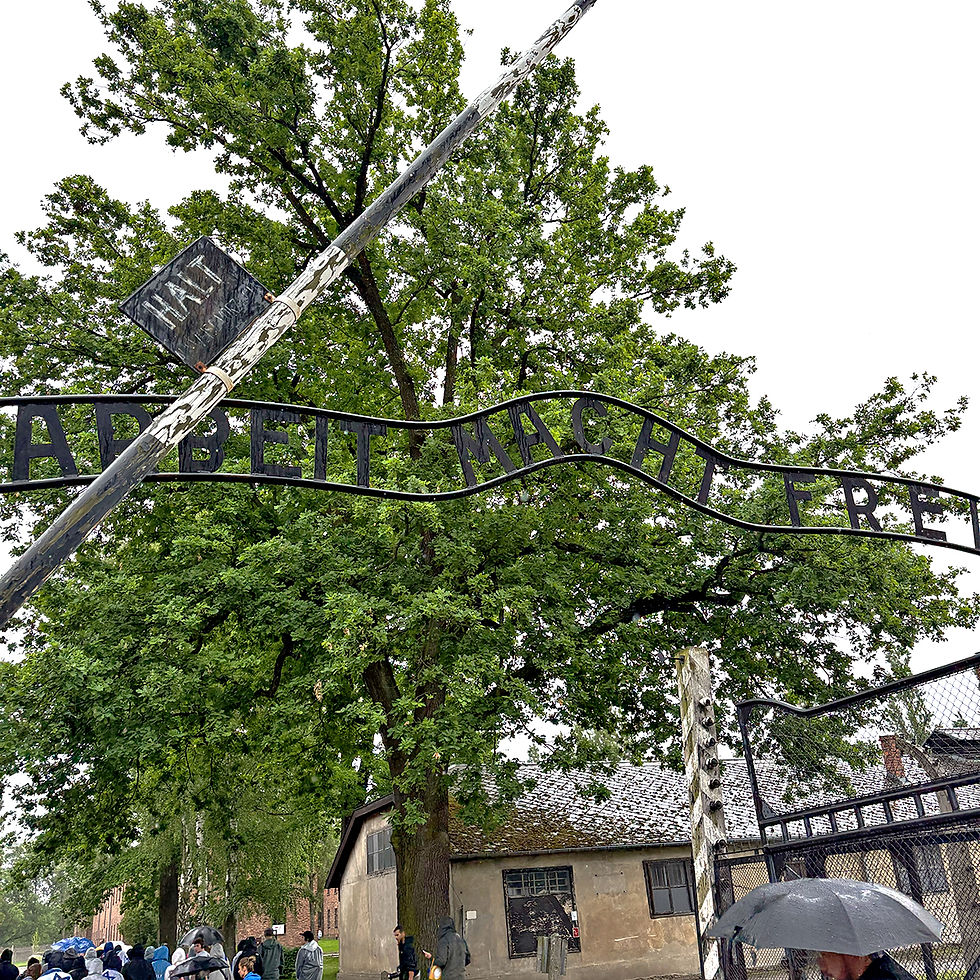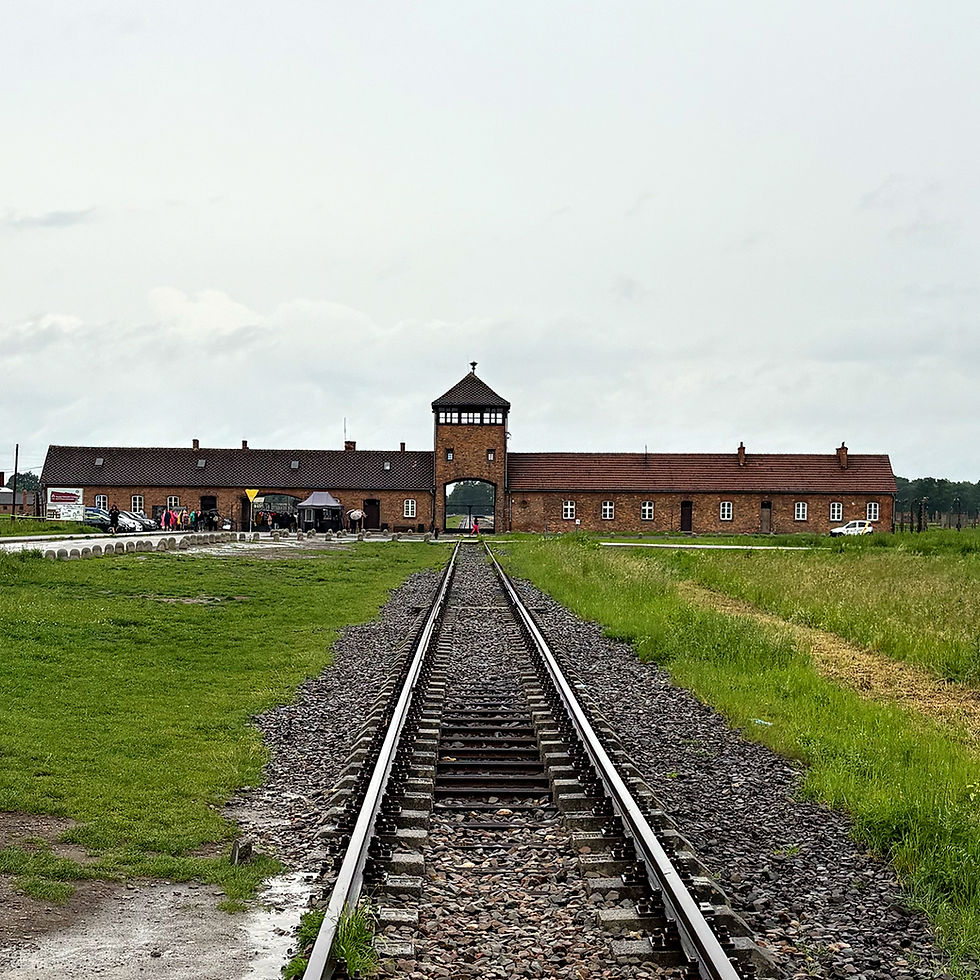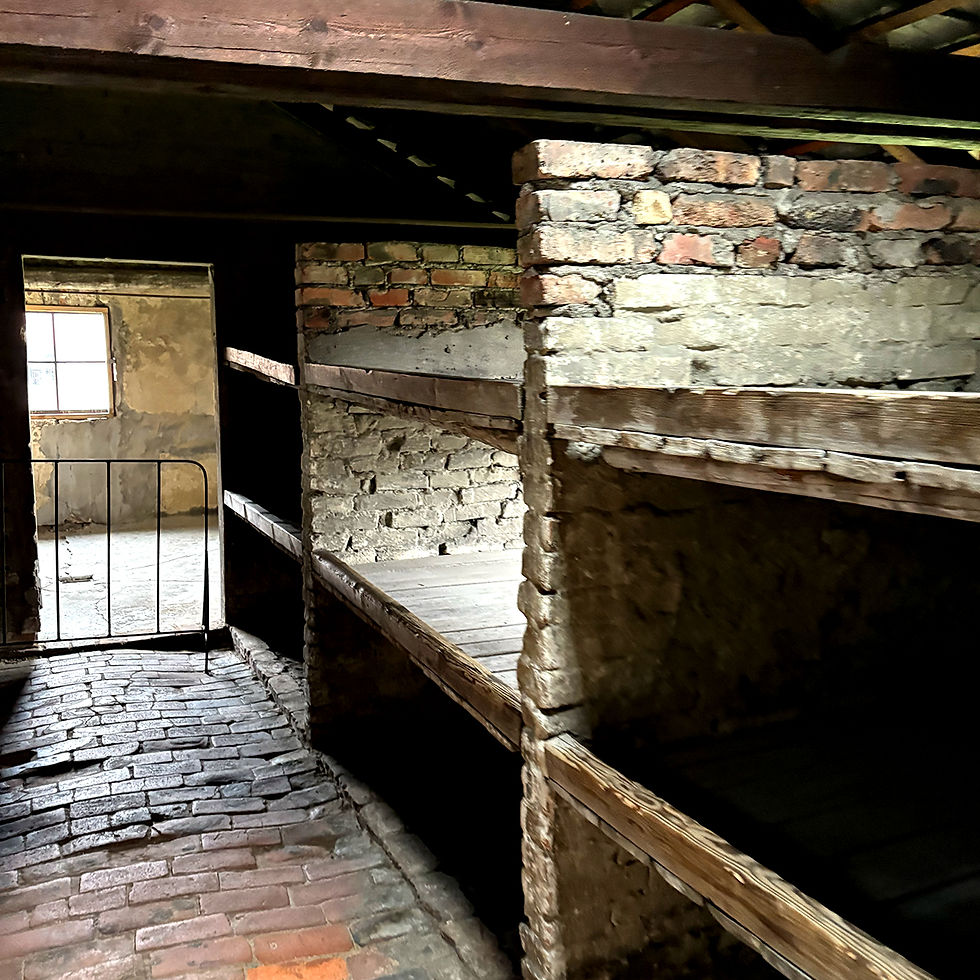The end of carefreeness
- lavieenroute
- Jul 29, 2025
- 3 min read
Traveling often means experiencing happy moments. Experiencing lightness. But in 2025, it might be a good idea to deliberately interrupt this state of carefreeness. Because, as we know, the liberal, open civil society that is the basis for travelers to explore new places is currently being put to the test in many places. To reflect on where this could lead, we take a look at what is perhaps the darkest place that history has ever produced.
Just a moment ago, it was a somewhat gray but mild morning in early June. In a small town in southern Poland, the friendly waitress in a café served us an early lunch and hot coffee.
In this pleasant environment, it is difficult to imagine what happened just a stone's throw from here a little over 80 years ago. This town is truly picturesque and idyllic. Its name is Oświęcim, or Auschwitz in English.
Just a short distance outside the town center lies the Auschwitz-Birkenau concentration camp memorial. Many groups are waiting for a guided tour, and so are we. The rain that has started to fall fits the mood.

Our guide is remarkable because he consistently strikes the right tone — he doesn't spare us visitors and speaks very clearly about what happened here. However, he does so without dramatization. After all, the place speaks for itself. We see traces of the horror, such as piles of luggage left behind by the people who were killed here, or their glasses.
As a group, we also walk through one of the camp's oppressive gas chambers. Unlike the approximately 1.1 million people who were murdered in the camps at Auschwitz, an open door awaits us at the other end of the building.
The guided tour of the memorial essentially consists of two parts. First, you see the main camp, which is still largely intact. Then there is a transfer to the area where the actual extermination camp was located. Many parts of it have been destroyed. However, you can still imagine the dimensions of the facility, both in terms of the area itself and the length of the railway ramp, which used to serve as a place of selection. Within moments, families were separated, decisions were made about life or death, and human lives were either ended without further ado or forced into an agonizing direction.

The German Nazi regime killed around 6 million people in this way, and yet there is a growing number of people (again?) who are either unaware of this part of history or simply deny it. We have never understood how anyone could have such a confused view towards humanity.
So what does a travel blog do with these impressions?
First of all, we will keep it brief and not recount the visit and the tour in every detail. Because: We would like to encourage all readers to travel to Poland to see for themselves. The Auschwitz-Birkenau Memorial is possibly the only place in the world where we wholeheartedly wish for as many visitors as possible, so that as much knowledge as possible is spread about where dehumanization can lead. Because, as the guided tours on site conclude, history can repeat itself. It can happen again.
We want to do our part to ensure that as many travelers as possible not only visit the dream beaches of Bali, but also the place that Holocaust survivor Elie Wiesel said would forever change the nature of human existence.
So, if you are looking for your next travel destination in Europe, the small town of Oświęcim and its memorial sites should definitely be on your list.
Because never again is now.




Comments